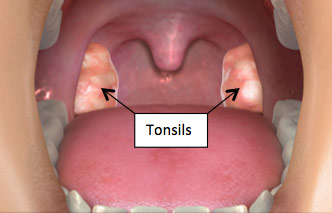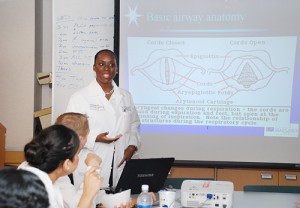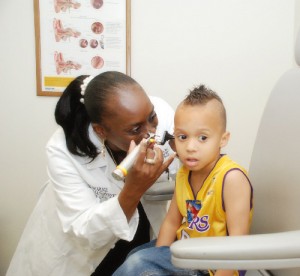- New Sublingual Allergy Tablets - October 31, 2014
- Ground-breaking New Treatment Option for Sleep Apnea - September 27, 2014
- Allergies versus Viruses in Children - September 27, 2014
- “Dog Dust” Protects Children from Allergies - September 27, 2014
- Nasal Saline Irrigation - August 8, 2014
- Doctor, I am Allergic to Dust. What Can I do? - July 31, 2014
- Infants Exposed to Dust Mites Less Likely to Develop Allergies - June 23, 2014
- How to Treat a Young Child’s Cough - December 17, 2013
- Many Parents are Unaware That Their Children Are at Risk for Noise Induced Hearing Loss - December 9, 2013
- Is it a Cold or an Ear Infection? - December 9, 2013
 As a school recovers from the knowledge that one of their own plotted an attack on students, reports are emerging that the accused Oregon teen suffers from a rare obsessive compulsive disorder related to streptococcus infection.
As a school recovers from the knowledge that one of their own plotted an attack on students, reports are emerging that the accused Oregon teen suffers from a rare obsessive compulsive disorder related to streptococcus infection.
“My heart goes out to everyone affected by Grant’s struggle with PANDAS, a rare form of OCD,” Grant Acord’s mother said. As that statement circulates, inevitably questions are arising as to what PANDAS really is.
What is PANDAS
PANDAS is an acronym for Pediatric Autoimmune Neuropsychiatric Disorder Associated with Streptococcal infections. While it is not fully understood, the name reflects current thinking on this disease:
- Pediatric: this entity occurs in children, anywhere from age 3 to adolescence
- Autoimmune: the body attacks itself; in this case, the body attacks the brain
- Neuropsychiatric: the symptoms that develop are those of new or worsened obsessive-compulsive disorder or a tic
- Streptococcal: the organism that causes a routine infection (i.e., tonsillitis, throat infection), after which PANDAS may develop
Usually, when strep is diagnosed and treated with antibiotics, the OCD or tics improve over several weeks to months. However, the next strep infection often brings on a dramatic recurrence of symptoms. Also, some children do not respond to elimination of the strep infection, and the neuropsychiatric symptoms persist.
 How is PANDAS diagnosed?
How is PANDAS diagnosed?
Unfortunately, there is no lab test to diagnose PANDAS and strep infections are very common in school age children. This syndrome is almost always detected by careful questioning and history-taking, establishing a relationship between the behavior onset and a confirmed strep infection.
What are the symptoms of PANDAS?
Aside from the worsening of OCD symptoms, new OCD symptoms, or tics, patients may also suffer from attention deficit hyperactivity disorder (ADHD) symptoms, separation anxiety, sudden mood changes, sleep disturbances, bed wetting or urinary frequency, and fine motor changes (inability to coordinate finger movement as well as previously done).
Can PANDAS be cured?
Because the disease is currently so poorly understood, treatment is limited. While it is critical to eliminate the strep bacteria using antibiotics, this does not ensure that PANDAS will resolve. It is important to address the neuropsychiatric problems with treatments geared towards those symptoms, including cognitive behavioral therapy and/or selective serotonin reuptake inhibitor (SSRI) medication. Tonsillectomy has not been proven to resolve PANDAS but is sometimes recommended for frequent episodes of tonsillitis. As knowledge of this condition grows, it is possible that treatment will become more effective or targeted but for now, awareness is critical, to diagnose as early as possible and prevent devastating outcomes.



